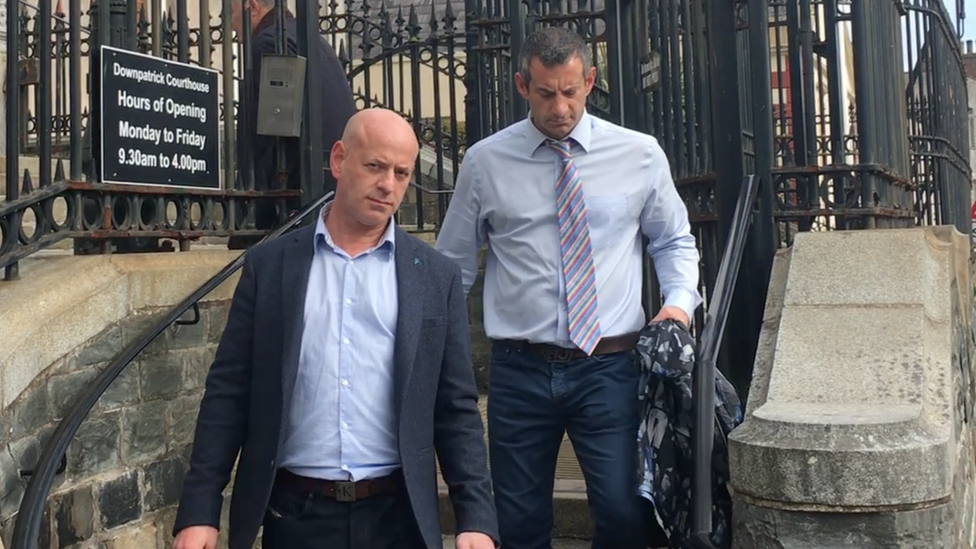Jail sentences over £1m counterfeit money scam
- Published
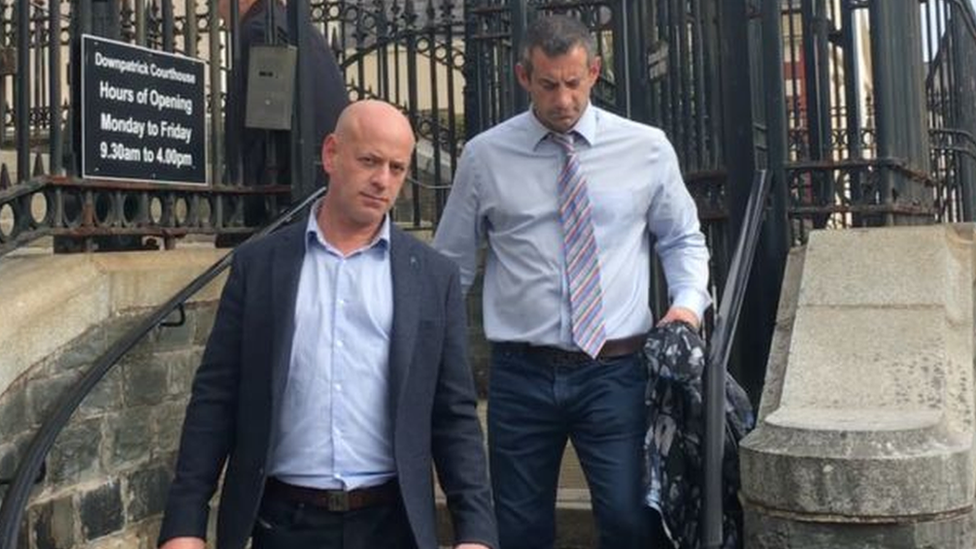
Brothers Mark and Andrew Johnston, pictured leaving court at an earlier hearing, were both jailed for their roles in the scam
Seven men, including two brothers, have been sentenced for their role in a "unique" £1m counterfeiting operation.
The operation saw the production of fake sterling and euro notes that, police said, were good enough to beat the counterfeit pen test.
But the scam was uncovered in November 2014 after shopkeepers in Ballynahinch became uneasy about the number of purchases made in the town.
A printing machine was used to produce the counterfeit money.
The cash was then available for purchase at a rate of £200 for £1,000.
Mark Johnston, 47, of Glen Rise in Belfast, was described in court as the head of the operation - he will serve half of an 18-month sentence in prison.
Also sentenced at Downpatrick Crown Court on Thursday was his brother, 46-year-old Andrew Johnston, of Alveston Park in Carryduff.
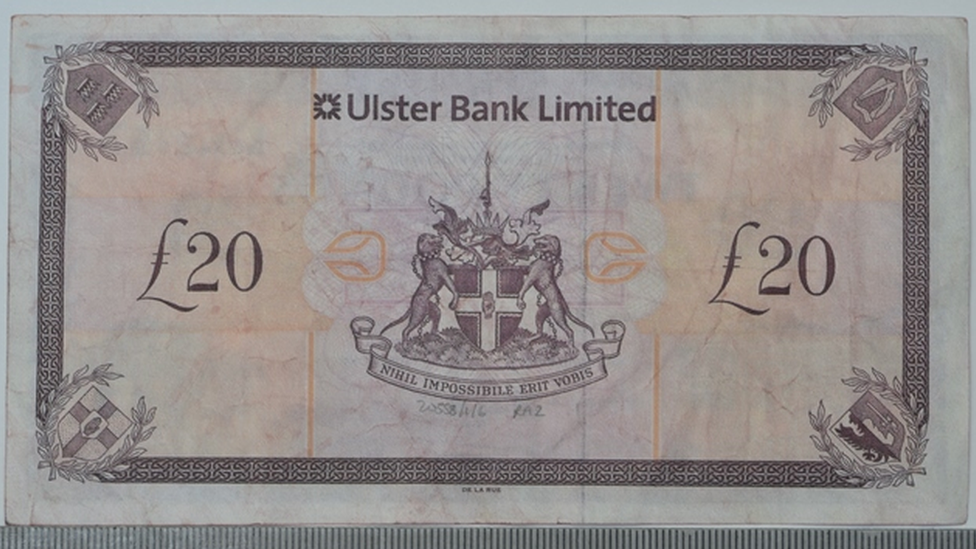
The court was told shopkeepers in Ballynahinch became suspicious of the notes
He was sentenced to 15 months, with half to be served in prison, after being deemed to have played a lesser role in the scam.
The judge said the sentences would be significantly longer had it not been for the length of time it took for the case to come before the court.
A third man, 28-year-old Gareth Gorman, of Queen's Avenue in Newtowntabbey, who was described by his defence as a "gopher" in the production of the fake notes, received a 12-month sentence suspended for three years.
Four other men also received 12-month sentences suspended for three years for spending the fake money.
They were Samuel Terrance Horner, 49, of Best's Hill, Belfast; 25-year-old James Wallace Titley Robinson, of Forthriver Road, Belfast; 27-year-old Alan Thompson of Drumart Drive, Belfast; and 35-year-old Norman Charles Titley of Abbey Park, Belfast.
Notes still believed to be in circulation
They were stopped in a car in Newtownards following reports of the notes being used in shops in Ballynahinch.
While all seven men initially denied involvement in the operation, they subsequently changed their stance.
Prosecution said a third layer of the case had not been uncovered - namely how the notes were passed between those who made them and those who spent them.
A large number of the notes are still believed to be in circulation.
In sentencing, the judge, who described it as a "complex and unusual" case, said the operation involved the production of thousands of high quality fake banknotes.
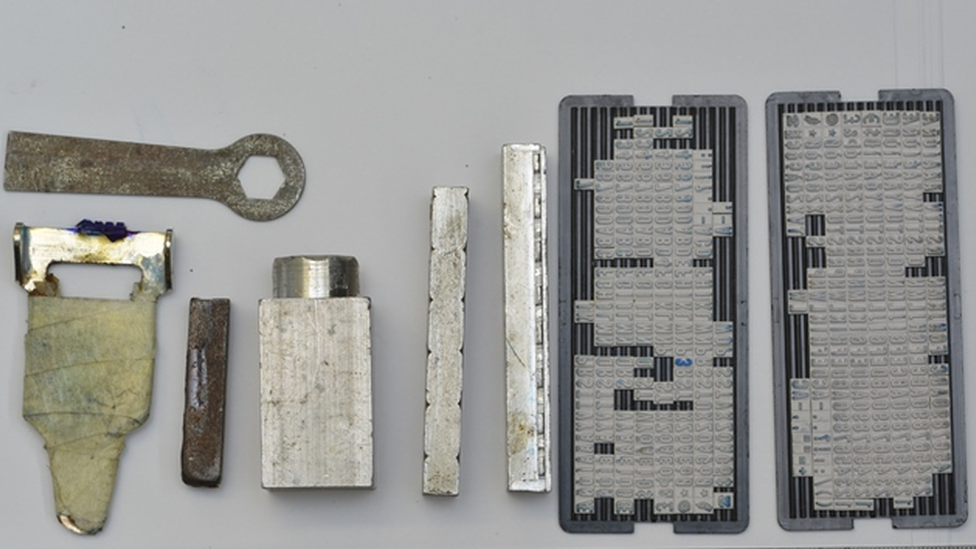
Some of the equipment used to produce the counterfeit notes
He told the court "there are clearly others involved in this operation that have not been made amenable".
Citing the fake notes as "worthless", the judge spoke of the impact this "serious" offending has on the economy.
Det Ch Insp Ian Wilson welcomed the sentences and said police had tackled a "sophisticated" operation.
"Not only does the manufacture of counterfeit currency adversely affect economic growth, it has a negative impact on the genuine local businesses who don't receive payment for their goods.
"In addition, profits made from manufacturing fake notes may fund further criminal activity," he said.
"I'd also like to remind business owners and employees to be vigilant when handling money and look out for fake notes in order to protect their business."
- Published11 January 2019
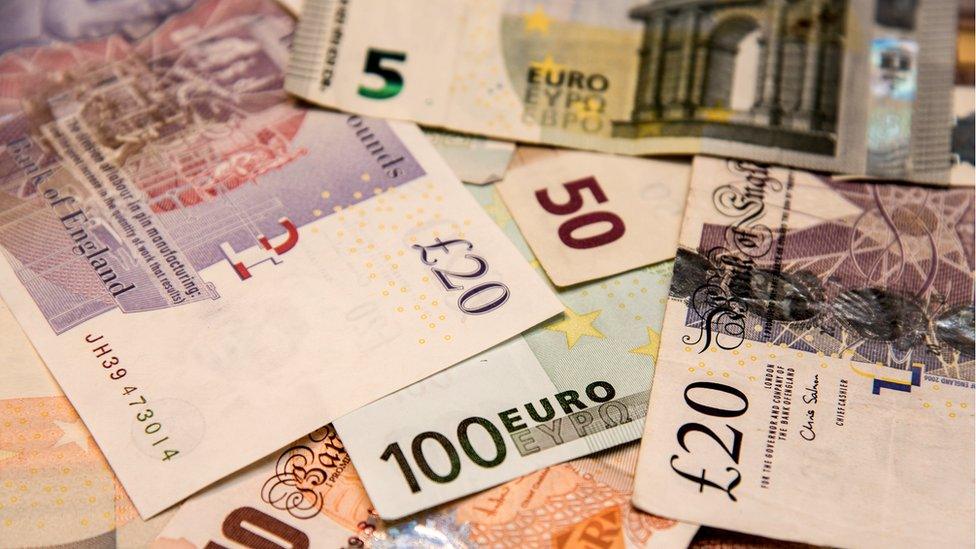
- Published1 October 2018
